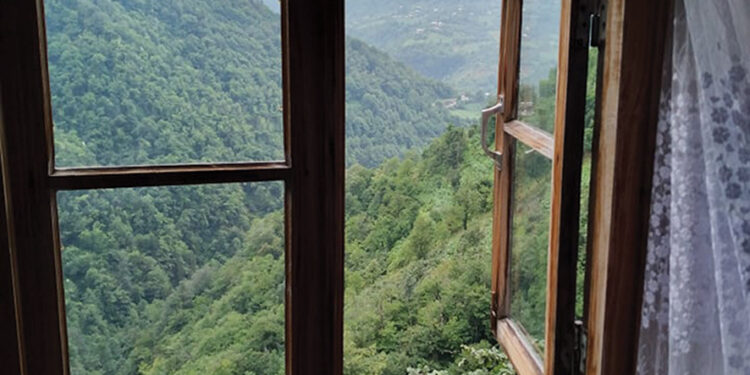Tatjana Montik – journalist, author, and passionate admirer of Georgia – has spent the past 15 years living in and reporting on this captivating South Caucasus country. With the upcoming release of her new travel diary and cultural guide, Georgia: A Tapestry of Time and Space, GEORGIA TODAY sat down with Tatjana to learn more about her journey, her inspiration, and what makes this book stand out.
Georgia: A Tapestry of Time and Space is far more than a traditional travel guide. As Tatjana explains, “This isn’t a tourist manual filled with clichés or surface-level tips. It’s a journey through Sakartvelo across time and space—an attempt to uncover the soul of Georgia.”
Drawing on years of journalistic experience and deep research—including consultations with ethnographers, historians, and local experts, and hours spent poring over ancient texts at the National Library—Tatjana weaves together a collection of stories that explore Georgia’s hidden corners, rich traditions, diverse subethnic groups, and national minorities.
But at its heart, the book is a tribute to the Georgian people—their warmth, creativity, and unwavering love for their homeland.
“I hope this book inspires you,” Tatjana says, “and helps you fall in love with Sakartvelo as deeply as I have.”

How did you come to Georgia and end up falling so in love with it?
I had longed to live in Georgia for a long time, even before I first visited. For me, Georgia was a fairytale land, full of miracles. When I came here to work and live with my children in 2010, my feelings were proven right: Georgia is a miracle, and discoveries are waiting for you at every turn.
Tell us about your book – the moment (or place or person) that inspired you to start writing.
I started writing from my very first day in Tbilisi. Everything and everyone around me was an inspiration: the nature, the landscapes, and the views (back then, we lived near the road to Turtle Lake), the incredibly warm-hearted people, especially their ability to love and be friendly, Georgia’s rich history (I’m a huge history fan!), and the feeling of excitement before great discoveries.

Which is your favorite region or location in Georgia? Why?
As I come from a country with no mountains at all, I love all of Georgia’s regions. Almost everywhere you go, you can see the mountains and feel their strong spirit. My favorite mountain regions are Tusheti and Svaneti. I admire their unique natural beauty, culture and traditions. My conversations with ethnographers have allowed me to peer even further behind the curtain of local customs and traditions. This is something I have tried to capture in my book.
What have been your most incredible, most surprising, and most difficult experiences while traveling in Georgia?
I’ve found so many incredible and surprising things here. What I’ve always loved is the readiness of Georgians to help, to show you the way, tell you a story, or invite you into their homes.

I quickly learned that you can’t thoroughly prepare for a trip here, because something will always come up to change your plans. Someone will give you a hand unexpectedly, and you’ll find new friends and fresh experiences. I say that Georgia is so close to heaven that you should be careful what you wish for—it will most likely come true.
What was difficult at times was dealing with certain men who were disappointed to learn that I wasn’t looking for a romantic affair during my travels.

As a professional explorer, in what aspects do you find Georgia excels/is still in need of some improvement?
I think Georgia should further specialize in family-run hospitality, a sector that’s really blossoming here. The true essence of Georgian hospitality lies within its families. I recently stayed at a family hotel in the village of Balda in Samegrelo, where every member—right down to the grandchildren—was involved in making our stay as pleasant as possible. I loved the hostess’s attitude: “We consider our guests to be part of our family.” In my opinion, that says a lot.
I also really wish that summer holidays by the sea in Georgia were as high-quality and positive as they are in other resorts around the world, like in Turkey, Cyprus, or Greece. For now, I’m hesitant to go on a summer holiday to the Black Sea, because all my past experiences have been a disappointment.

Which Georgian legend do you find most poignant/inspiring?
I find a few legends particularly powerful. I love the stories of Dali, the Svan hunting goddess, as a personification of fierce, untamed female power. The legends about her, often dark and compelling, show a deep connection between humanity, nature, and fate.
Georgia is about ancient history and fascinating connections with other world cultures. It’s about deeply rooted traditions and values
I also find the legend of the Tmogvi Fortress very strong and poignant. It tells a story of betrayal and justice, teaching a harsh lesson: a traitor who deceives their own people and leads them to defeat should not be shown mercy, even by the winning side. It’s a powerful reminder of the value of loyalty and the severe consequences of treachery.

What do you hope readers will take away from exploring your stories?
I hope my readers would see that Georgia is more than the usual clichés. It’s not just about dancing, singing, wine, and khachapuri, and it’s not even just about my beloved mountains or other irresistible landscapes. Georgia is about ancient history and fascinating connections with other world cultures. It’s about deeply rooted traditions and values—ones that have explanations in complex historical phenomena, but not those being shared now by certain social influencers.
Georgia is also about its many cultural layers, diverse subethnic groups, and unique minorities, and above all, its tolerance. This, and so much more, is what makes Georgia so precious, unparalleled, and invaluable.

Where/How can readers buy your book?
Currently, you can order it worldwide on Amazon. It will also be on sale here in Georgia during my book presentations, which we’re planning for the autumn. I’m hoping some local bookstores will also order copies from Germany (IBIDEM Publishing House) to sell here.
Interview by Katie Ruth Davies














